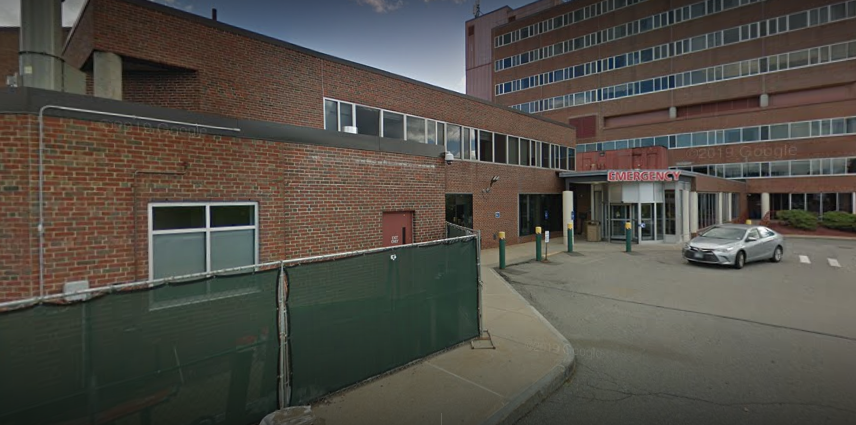By DAMIEN FISHER, InDepthNH.org
A federal court judge ruled Thursday that the New Hampshire Department of Health and Human Services is violating the 4th Amendment by forcing hospitals to care for people experiencing mental health crises in emergency rooms.
Judge Landya McCafferty ruled the state’s process of getting people in a mental health crisis appropriate care is broken, and the state is essentially seizing property from the private hospitals when it forces them to board and treat patients who are supposed to be getting state services.
“The result is that the Commissioner is seizing the Hospitals’ emergency departments by boarding her patients there without the permission of the Hospitals,” McCafferty wrote. “On this record, there is no dispute of material fact that the Commissioner’s unlawful boarding practice is an unreasonable seizure of the Hospitals’ emergency departments.”
The lawsuit was originally brought by a class of John Doe/Jane Doe plaintiffs who argue the state is violating the rights of people in crisis by forcing them to stay in emergency rooms for as long as four weeks while they wait to be admitted to a psychiatric hospital, usually New Hampshire State Hospital.
That lawsuit was joined by a group of 15 hospitals and health care systems who sought judgment against the state, claiming NH DHHS is violating their 4th Amendment rights against unreasonable seizures. After some of the plaintiffs agreed to drop their complaints, Friday’s ruling is in favor of the 15 hospitals and one health care system.
McCafferty found the state is illegally taking time, space and property from the hospitals through its boarding practice.
“(The) Commissioner’s boarding practice commandeers space, staff, and resources in the Hospitals’ emergency departments that is needed for other patients and services,” McCafferty wrote.
Steve Ahnen, president of the New Hampshire Hospital Association President, said the goal has always been to make sure everyone is getting the care they need. That’s not happening now for mental health patients being boarded in emergency rooms, he said.
“This case has always been about ensuring patients in acute psychiatric crisis are able receive the care they need immediately and, in a facility, specially designed for that purpose,” Ahnen said.
Under the state’s involuntary commitment law, a person who is a danger to his or herself or others, may be involuntarily committed and must have a probable cause hearing before a judge within three days of being admitted, continuing to be held.
In many cases, people are held much longer than three days as they wait for a bed to open in a psychiatric hospital, some as long as four weeks, without a probable cause hearing. Part of the problem, according to McCafferty, is the state simply does not have the facilities to treat people who are being held. New Hampshire State Hospital does not have enough beds, and it does not have enough staff, McCafferty wrote.
“As a result, the state’s IEA-certified patients remain in private hospitals’ emergency departments, waiting until space becomes available in a designated receiving facility, for days and even weeks, during which time the Hospitals provide the space, facilities, board, and services needed by the Commissioner’s patients,” McCafferty wrote.
Gov. Chris Sununu is pushing for a new mental health system in the courts, creating a centralized filing system, two circuit court judges, staff, and counsel for patients subject to an involuntary emergency admission, as well as equipment for hospitals to ensure patients have remote access to court hearings.
There are also plans to build a new mental health hospital in the state which could add up to 25 beds.
NH DHHS did not respond to a request for comment. The New Hampshire Attorney General’s Office is representing the agency in court, and Communications Director Michael Garrity said the DOJ will respond in court.
“We are currently in the process of reviewing the order and would respond as appropriate in court,” Garrity said.
While McCafferty sided with the hospital’s when it came to the 4th Amendment violation, she denied the hospitals’ motion for an injunction against the state. Instead, she is ordering both sides to work out a detailed plan to stop the illegal seizure of hospital emergency rooms.
Ahnen said the hospitals are ready to work with NH DHHS and make sure people get the appropriate care.
“We look forward to working with state leaders to ensure achievement of a permanent solution as quickly as practicable,” he said.
The complaint brought by the Doe plaintiffs is still pending in the United States District Court in Concord.





